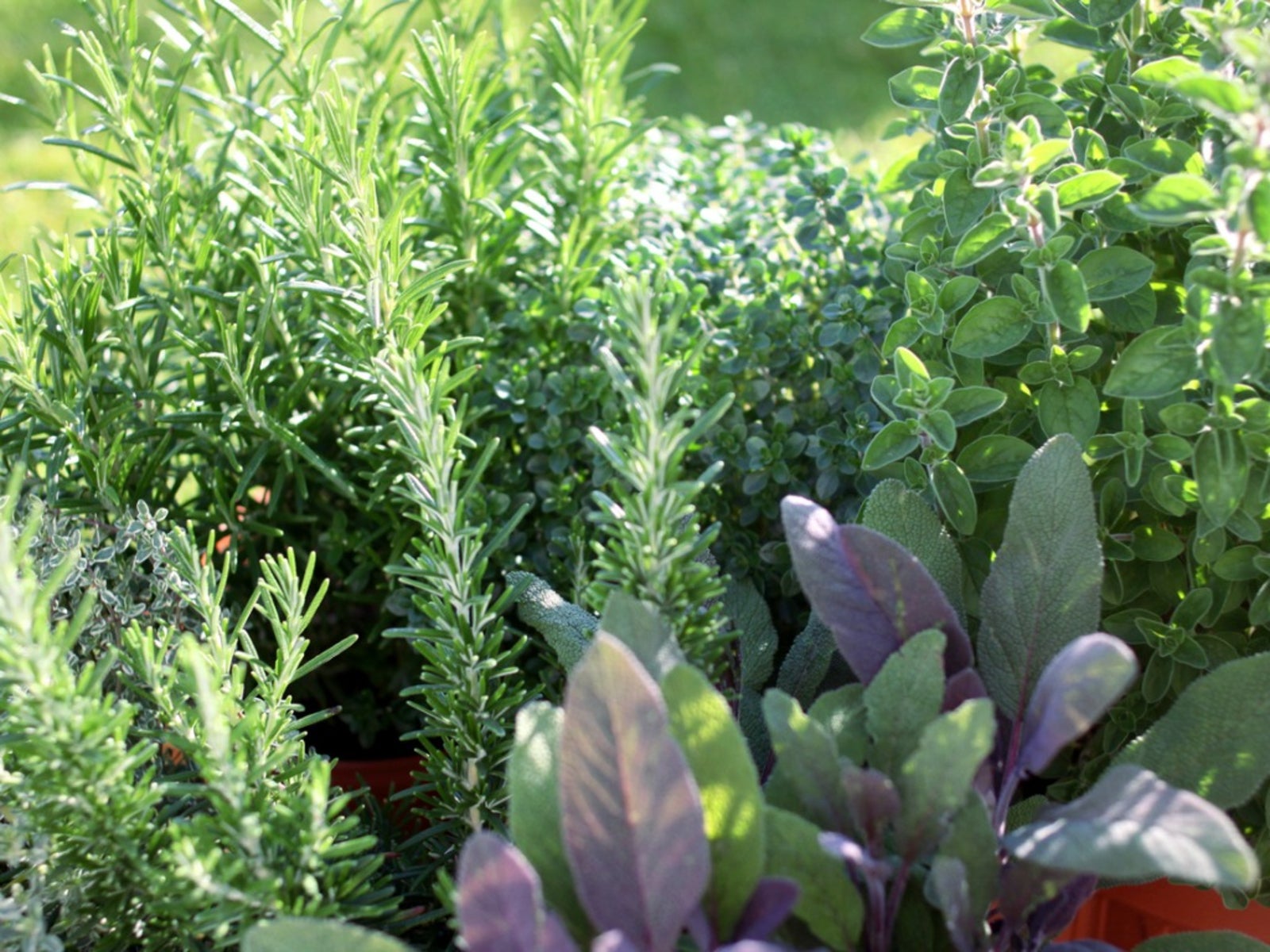Herb Garden Design - Choosing A Site For Your Herb Garden

When choosing a site for your herb garden, there are several important factors you need to consider before selecting a permanent location.
Sunlight for Your Herb Garden
First and foremost, you'll need to choose a site that receives at least six to eight hours of sunlight per day. Most herbs need plenty of sunshine in order to grow and reach their full potential. Herbs, like most sun-loving plants that don't receive their minimum daily allowance of sunlight, will end up leggy, awkward-looking, and unproductive instead of lush, beautiful, and useful. Before digging, spend a day making note of all the sunny spots in your yard. Check on these spots at hourly intervals to see exactly how long the sun remains at any given location in your yard. Trees, bushes, building structures, and even tall-growing flowers or vegetables can cast shade at different times during the day. Knowing the sunny spots in your yard will make your garden planning easier. Of course, there are some shade-loving herbs, but you will find that your choices among them are very limited, and aside from parsley, most of these herbs are not useful for cooking. If sunlight in your yard is in short supply, you may want to think about container gardening. By growing your herbs in containers, you will be able to easily move them to follow that much needed sunlight.
Well-Drained Soil for Your Herb Garden
Herbs need well-drained soil to be able to do their best. The soil needs to be somewhat light and easy to till. When choosing a site for your herb garden, check the quality of your soil by running a hose at the chosen location for several minutes. If the water from the hose puddles up, you will need to amend the soil, possibly by adding some sand, peat, or compost. Be careful when adding compost though. You don't want to make the soil too rich. If the soil is too rich, your herbs will become weak and more prone to diseases. The perfect pH level for most herbs is 6.5, but herbs are frequently forgiving and can grow in soil that is slightly acidic or alkaline. For best results, they usually only need moderate fertilization.
Location of Herb Gardens
Herb gardens are meant to be used and admired; that's why it's important to consider practicality when choosing a site for your herb garden. No one wants to traipse across a dark yard at night or during a rainstorm in order to harvest a few leaves of basil or oregano. Choosing a site that is nearby will eliminate this problem and make it easy to reap the rewards of your herb-gardening efforts. One of the best places to put your herb garden is right outside your back door, where not only can you get to it easily, but you can enjoy the rich, savory scents that emanate from it every time you walk outside. If planting next to your back door isn't convenient or isn't an option for you, think about including some herbs in and among the shrubbery in your front yard. Most herbs are extremely attractive on their own and can make a lovely and somewhat unusual display when mixed in with the bushes and flowers of your landscape, helping to beautify your yard while also keeping the herbs handy for their appropriate uses. Choosing a site for your herb garden that is close by will also make it easier to water, prune, and tend to your herbs as needed. Spending a little extra time before choosing a site for your herb garden will ensure you of having the best producing, easily accessible, and most useful herb garden possible. After all, that's what it's all about.
Sign up for the Gardening Know How newsletter today and receive a free copy of our e-book "How to Grow Delicious Tomatoes".